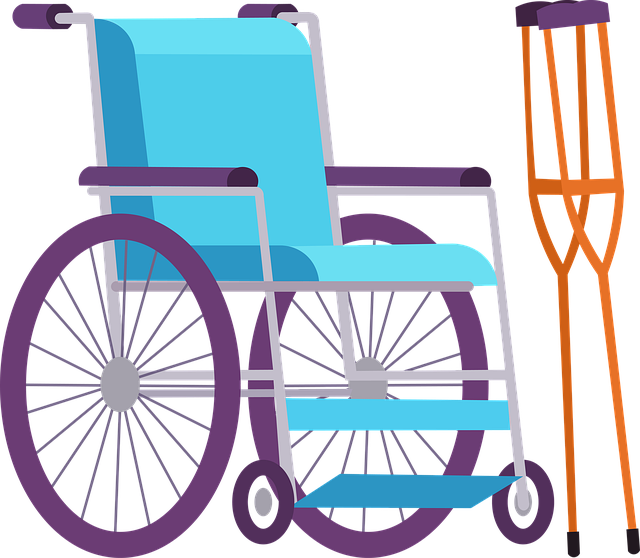Cocaine withdrawal presents physical and psychological challenges lasting weeks. Holistic approaches including Crisis Intervention Training, sobriety groups, wellness programs focusing on nutrition, exercise, and stress management are crucial for long-term recovery. Mindfulness practices, such as meditation, deep breathing, and yoga, aid in managing cravings, developing self-control, and fostering emotional resilience. CBT, combined with mindfulness, enhances sobriety by improving emotional awareness and accepting sensations without judgment. Online support groups further motivate individuals throughout the addiction treatment process. Natural remedies for cocaine withdrawal, like mindfulness and CBT integration, offer comprehensive solutions for long-term recovery.
Overcoming cocaine addiction requires a comprehensive strategy. This holistic approach combines evidence-based therapy with mindfulness practices, offering a powerful pathway to sustained sobriety. By addressing both the physical and psychological aspects of withdrawal, individuals can navigate the challenging symptoms and emotional upsurges effectively. Discover natural remedies for cocaine withdrawal through understanding the process, adopting mindful techniques, and embracing therapeutic interventions tailored to long-term recovery.
- Understanding Cocaine Withdrawal: Symptoms and Challenges
- Mindfulness Practices for Mental and Emotional Balance
- Integrating Evidence-Based Therapy for Lasting Sobriety
Understanding Cocaine Withdrawal: Symptoms and Challenges

Cocaine withdrawal is a complex process marked by a range of physical and psychological symptoms as the body adjusts to the absence of the drug. This period can be incredibly challenging, often characterized by intense cravings, mood swings, fatigue, and even sleep disturbances. The symptoms typically appear within hours to days after ceasing cocaine use and can last for several weeks.
Understanding these challenges is crucial in equipping individuals with the tools they need. Many seek natural remedies for cocaine withdrawal as part of a holistic wellness program. This includes strategies such as Crisis Intervention Training, which teaches individuals to recognize emergency situations and provide immediate support. Sobriety support groups and holistic approaches focusing on nutrition, exercise, and stress management play a significant role in long-term recovery. These methods prioritize overall well-being, addressing not just the symptoms but also the underlying causes of addiction.
Mindfulness Practices for Mental and Emotional Balance

In the context of natural remedies for cocaine withdrawal, mindfulness practices play a pivotal role in achieving mental and emotional balance. Beyond simply being techniques for relaxation, mindfulness involves actively focusing on the present moment, acknowledging and accepting feelings and sensations without judgment. This cognitive shift helps individuals cultivate awareness of their thoughts and emotions, enabling them to address underlying issues contributing to drug use.
Mindfulness Techniques for Stress Relief are particularly beneficial in early sobriety. They help manage cravings and triggers by teaching individuals to respond rather than react to stressful situations. By integrating healthy habits like meditation, deep breathing exercises, or yoga into daily routines, those in recovery can develop a stronger sense of self-control and emotional resilience. These practices also foster a deeper connection with the body, aiding in the physical recovery process. Additionally, Recovery Support Services providing ongoing guidance and encouragement throughout the recovery journey often incorporate mindfulness as a core component, underscoring its importance in sustaining long-term sobriety.
Integrating Evidence-Based Therapy for Lasting Sobriety

Integrating evidence-based therapy is a cornerstone in achieving and maintaining sobriety from cocaine addiction. These therapeutic approaches are backed by extensive research, ensuring their effectiveness in treating the complex nature of substance use disorders. By focusing on cognitive-behavioral therapies (CBT), individuals can learn to identify and manage triggers, develop healthier coping mechanisms, and challenge negative thought patterns associated with drug cravings. This tailored approach empowers those seeking recovery with practical tools to navigate challenges and prevent relapse.
When combined with mindfulness practices, evidence-based therapy becomes even more powerful in fostering long-term sobriety. Mindfulness techniques teach individuals to stay present, enhancing their ability to recognize and accept emotions and sensations without judgment. This awareness is crucial for managing cravings and preventing a return to drug use. Many natural remedies for cocaine withdrawal, such as meditation and yoga, fall under this mindfulness umbrella, offering holistic support for mental health help and recovery from addiction. Additionally, participation in online recovery support groups can complement these therapeutic methods, providing a sense of community and ongoing motivation within the addiction treatment process.
A holistic approach to overcoming cocaine addiction, integrating evidence-based therapy with mindfulness practices, offers a powerful and sustainable path to sobriety. By addressing both the mental and emotional aspects of withdrawal, this method provides individuals with the tools to navigate symptoms, manage triggers, and achieve long-term recovery. Incorporating natural remedies for cocaine withdrawal, such as mindfulness techniques, can empower folks to take control of their well-being and build a brighter future free from addiction’s grasp.






